The Supreme Court thing explained as if to a golden retriever
9 min readI work in a newsroom and even I don’t know what is going on with the Supreme Court. Part of me doesn’t care and part of me feels stupid. Each day over-excited reporters give beepers but it feels as if they are talking to other journalists. In the evening, graven talk show 🔮 hosts bicker about the Supreme Court thing but it feels as if they are also having a running conversation. Tiny developments dance around in ruby red boxes on our TV screens—but there is no way to tell where this incremental development fits in the grand scheme of life.
Apparently everyone gets it but me. But my head hurts now.
I usually don’t get involved but then three readers on Twitter, @waniaaijaz_, @EliHk2 and @pindhfloyd wanted it explained as if they were five-year-olds, or golden retrievers. I begged smartoo lawyer Usama Khawar Ghumman (@UsamaKhawar), who teaches law at LUMS to explain it as if I were a golden retriever.
I have really simplified what he said, below.
So here is the Supreme Court thing for golden retrievers. (Please beware, however, that this only brings you up to speed till Friday. Expect much more to happen and I’ll update this piece along the way.)
In a doggo biscuit-sized nutshell
- Elections are not being held so it landed in the Supreme Court
- The chief justice picked 9 judges to hear the case
- There was a lot of disagreement on who he picked and who he left out
- Audio leaks led to serious bribery talk against judges
- Some judges gave decisions, others backed them
- As the CJP removed some judges the way to calculate a majority vote got muddled
The long but simpler version This section will use changing coloured balls as a reader’s guide
🟣 is for the original set of judges (I chose all colours randomly)
These 🟣 balls change colour as the story unfolds, into:
🟡 🟢 🔵 🔴
The Supreme Court is hearing a case on elections not being held in Punjab and KP. The Election Commission has refused to hold those elections. This is weird for our democracy.
Prior to this, one moon ago, the PTI and the bosses (Speakers) of the Punjab and Khyber Pakhtunkhwa assemblies (also PTI people) filed petitions in other courts complaining that elections were not being held. Everyone is mad that elections are not being held.
Meanwhile, elsewhere, 2 Supreme Court judges (🟡🟡) were hearing a case about some policemen. It was about whether the temporary Punjab government (given that the Punjab Assembly went home) could transfer them (caretaker governments are like nannies who babysit a province until mummy and daddy come home). But these 2 🟡🟡 judges decided they were also interested in these elections not being held. They wrote a note with their thoughts 🧠 and feelings 🧐 to the Chief Justice of Pakistan to do something about it.
The chief justice decided he would do something about it. In chief justice language this is called doing a suo motu. Judges like talking in Latin so suo motu is just a non-English way of saying “on its own”. So the Supreme Court started hearings on the election question on its own. At the same time, remember, petitions on the same problem were running in other courts.
In order to do the suo motu, the chief justice had to choose judges to hear its own case. Groups of judges chosen to hear cases are called benches—which is a non-Latin way to talk about judges sitting together to tell us what to do.
The chief justice chose 9 🟣🟣🟣🟣🟣🟣🟣🟣🟣 judges for the suo motu election case. In the 9, he chose himself, those 2 🟡🟡 judges who had written to him about their feelings and a few others.
But most crucially he did not choose two of the Supreme Court’s most senior judges (after himself because he’s the most senior).
This was considered weird and lots of questions were asked:
- Why was this suo motu notice taken on the suggestion of two 🟡🟡 judges hearing a policemen case? Why were they interested in elections which is a political matter?
- Why did the chief justice include 2 🟡🟡 judges who had already told him how they felt about the elections (they felt it was unconstitutional not to hold them within 90 days). This means they had already given their opinion even though no hearings had been held to debate the matter.
- Why did the chief justice not choose 2 of the Supreme Court’s most senior judges to hear this case?
The chief justice did not respond 🧯 to the criticism. The suo motu hearings started.
Then the other 🟣 judges on the bench also spoke out. They asked the same questions. These other judges used harsh legal language. Ordinarily judges talk nicely about each other. They use words like “brother justice” and “brother judge” 😇.

To make matters worse…
While all of this was happening, our social media exploded with leaked audios. The names of the 2 🟡🟡 judges were in the audio leaks. One voice belonged to the second most important official in Punjab, a man close to CM Pervaiz Elahi. He said bad stuff against the 2 🟡🟡judges, like one of them took money. Another leak hinted at a judge taking rishwat. One leak said former chief minister Pervaiz Elahi went to meet one of the judges (which is not cool). He did not deny this.
When all this nasty stuff comes up the chief justice can get the Principal’s Office (called the Supreme Judicial Council) to hear complaints against judges. But he didn’t. He just checked in with the 🟡 judge who said he didn’t do nuffin’. The CJP said he believed him.
Now the other 🟣 judges were getting worried. The reputation of their job was at stake. Why wasn’t the chief justice doing something about it?
The chief justice is known as the “head of the family or household” or, as judges like to talk in Latin, he is the pater familias. His job is to protect the honour of the family (like something out of a Mario Puzo novel).
Then something weird happens during the suo motu hearings that has never happened before.
Normally, after every day of court stuff, a piece of paper called a “judicial order” is issued on what happened during the day. The judge dictates what happened to the court clerk who ✍️ it down. They type it up. Some judges can add “dissenting” notes to it if they disagreed with something that was said.
On that day there was no order. There were arguments for hours but no order came. People following these suo motu hearings thought maybe the order would be given tomorrow. The hearing took place the next day and there was still no order.
The order came on the third day but people asked what about the orders of the first and second days? Two orders had gone missing.
On the 3rd day, the order said that since there were nasty things said about these two 🟡🟡 judges, they have recused themselves. Recusal is when a judge says they don’t want to hear a case.
🟣🟣🟣🟣🟣🟣🟣🟣🟣
9 - 2 = 7 judges left
🟣🟣🟣🟣🟣🟣🟣🟡🟡
The same day 2 other 🟢🟢 judges (out of the 9) said the election case should not be heard. The chief justice removed them.
🟣🟣🟣🟣🟣🟣🟣🟣🟣
🟣🟣🟣🟣🟣🟣🟣🟡🟡
🟣🟣🟣🟣🟣🟢🟢🟡🟡
9 - 2 - 2 = 5 left
One of the 🟢 judges who was removed said something that had never been heard before. He said that some of the stuff he said was not included in the order of the day. He basically accused the chief justice of changing the order that was dictated in open court.
(He said he raised the question in open court that we would have to see why these assemblies were dismissed in the first place. Was one man who was not even a CM or assembly member [Imran Khan] insisting on it? Can a chief minister wake up and just because he’s had a bad cup of coffee, decide to throw out an entire elected assembly because the constitution gives him this power? We should see if there are limits to these powers?)
This was unprecedented: the pater familias was being accused of dishonesty. The chief justice removed 🟢 him.
Let’s do the math. Out of the original bench of 9 judges, only 5 were left. The suo motu hearings continued.
Then, 3 🔵🔵🔵 of 5 judges said the election commission should hold the elections.
🟣🟣🟣🟣🟣🟣🟣🟣🟣
🟣🟣🟣🟣🟣🟣🟣🟡🟡
🟣🟣🟣🟣🟣🟢🟢🟡🟡
🟣🟣🔵🔵🔵|🟢🟢🟡🟡
🔴🔴🔵🔵🔵|🟢🟢🟡🟡
Two 🔴🔴 of the 5 said NO. They said we should not get involved in politics. Plus, this suo motu is unjustified because other courts were already hearing petitions. They were also unhappy at the way some judges were chosen and some were not invited. They were worried about the bribery talk.
But most interestingly, these two 🔴🔴 judges said they agreed with their two 🟢🟢 “brother judges” who had earlier decided that this suo motu election case should not be heard. (Remember the 2 judges who were removed?). Our order and their order is the same order, they said. That turns more balls green. So it would seem like a majority of judges were of one mind. But it’s complicated, like life.
🔵🔵🔵|🟡🟡🟢🟢🟢🟢
This is the big debate that you and I have been hearing on TV and in the talk shows. It’s about the math. How do you count a majority vote (4-3) on a moth-eaten bench of 7 judges (because 2 were recused from the 9)? And what do you do when some of them agree with what the others said. How do you count totals and a majority?
You’ll have to forgive me for trying to present this entire complicated scenario in such simple terms. It doesn’t do justice (no pun intended) to the seriousness of the matter and no disrespect is meant to the Supreme Court or its judges. But I do understand just how complicated this whole story has been and I would like to help others gain some sense of what has happened. Which brings me to my other question to our helpful lawyer.
I asked Usama Khawar Ghumman: How does this affect you and me? Is this not just like men fighting amongst themselves? Why should we even care and spend time trying to understand this?
He agreed that it seemed like men fighting but, he added, there are real consequences for us. Chief justices are incredibly important. There is a long-running discontentment behind this Star Plus drama. There are serious repercussions for democracy. The Supreme Court in our Constitution is the ultimate body, in theory the most powerful one. It tells us what the Constitution says. If the Supreme Court says the prime minister needs to go home, it can say the Constitution says it—even if the Constitution says nothing. If the Supreme Court says it, it happens. In fact, the Supreme Court has removed 2 prime ministers. The Supreme Court can send home an entire parliament. All of this at the end of the day has economic consequences. That ends up affecting each and every household in Pakistan.
Postscript by Arif Anjum, our deputy editor who takes over when I am tired
While judges were trying to get their math right, the PTI asked the Supreme Court to enforce its judgment on holding elections. It filed a petition that was set for hearing this week. The chief justice chose a five-judge bench this time.
On Thursday and Friday, two judges from this five-member bench recused themselves saying they believe the Supreme Court should not hear the PTI petition until it gets the math right on the earlier judgement (The question that it was a 4-3 judgement or 3-2 judgement.)
But the chief Justice decided to hear the case with the remaining three judges. He also dismissed a government plea to form a full court that may include all the SC judges.
For the latest news, follow us on Twitter @Aaj_Urdu. We are also on Facebook, Instagram and YouTube.
















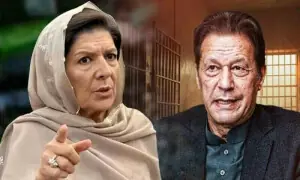


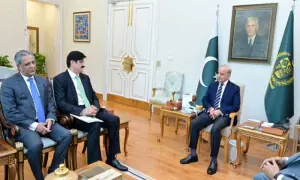
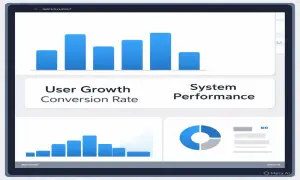
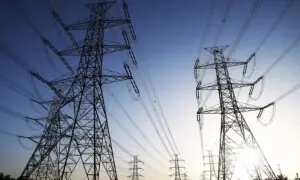
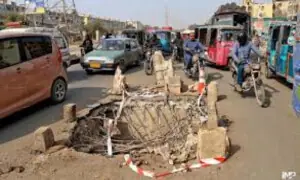
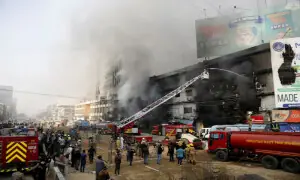

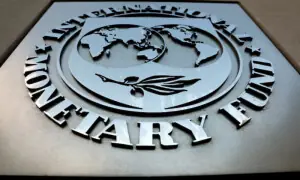
Comments are closed on this story.